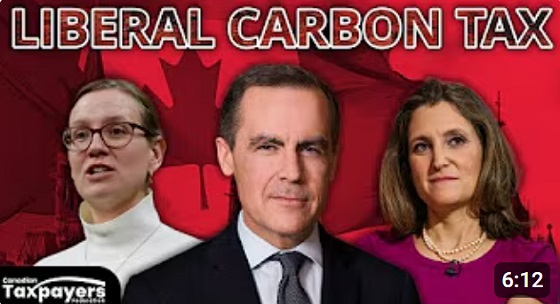Business
McDonald’s the latest corporation to retreat from DEI policies, commits instead to ‘Golden Rule’

From LifeSiteNews
Fast food giant McDonald’s is the latest major corporation to distance itself from “diversity, equity, and inclusion” (DEI) policies, reframing its approach to inclusivity around the more universal “Golden Rule.”
The Associated Press reports that the chain plans to abandon specific diversity targets for senior leadership, end a program aimed at diversity training for suppliers, and pause participation in “external surveys,” such as those conducted by the LGBT pressure group Human Rights Campaign (HRC).
“McDonald’s position and our commitment to inclusion is steadfast,” McDonald’s leadership declared in a January 6 open letter. “Since our founding, we’ve prided ourselves on understanding that the foundation of our business is people. As Fred Turner said, ‘We’re a people business, and never forget it.’”
“We are also excited to introduce a new concept: the power of OUR ‘Golden Rule’ – treating everyone with dignity, fairness and respect, always,” it added. “For the last several months, a small team has been working on refining our language to better capture McDonald’s commitment to inclusion.”
McDonald’s cited the “shifting legal landscape” after the U.S. Supreme Court ruled that race-based affirmative action was unconstitutional in 2023 as contributing to the changes. Conservative activist Robby Starbuck, who has successfully pressured other companies to reverse woke policies, said he had informed McDonald’s he planned to release a report on them as well.
McDonald’s joins Walmart, Jack Daniel’s, John Deere, Tractor Supply, Lowe’s, Toyota, and Coors, all of which have dropped “woke” corporate policies over the past several months in response to public pressure.
In recent years, left-wing activists have used DEI and “environmental, social, & governance” (ESG) standards to encourage major U.S. corporations to take favorable stands on political and cultural issues such as homosexuality, transgenderism, race relations, the environment, and abortion.
Political and customer backlashes to such activism has translated to business woes for companies such as Disney, Bud Light, and Target. Former President Donald Trump’s defeat in November outgoing Vice President Kamala Harris for the White House has also been seen by many as further evidence of the general public rejecting woke ideology, further signaling to corporations and activists alike the lack of popular receptiveness to such projects.
2025 Federal Election
MEI-Ipsos poll: 56 per cent of Canadians support increasing access to non-governmental healthcare providers

-
Most believe private providers can deliver services faster than government-run hospitals
-
77 per cent of Canadians say their provincial healthcare system is too bureaucratic
Canadians are increasingly in favour of breaking the government monopoly over health care by opening the door to independent providers and cross-border treatments, an MEI-Ipsos poll has revealed.
“Canadians from coast to coast are signalling they want to see more involvement from independent health providers in our health system,” explains Emmanuelle B. Faubert, economist at the MEI. “They understand that universal access doesn’t mean government-run, and that consistent failures to deliver timely care in government hospitals are a feature of the current system.”
Support for independent health care is on the rise, with 56 per cent of respondents in favour of allowing patients to access services provided by independent health entrepreneurs. Only 25 per cent oppose this.
In Quebec, support is especially strong, with 68 per cent endorsing this change.
Favourable views of accessing care through a mixed system are widespread, with three quarters of respondents stating that private entrepreneurs can deliver healthcare services faster than hospitals managed by the government. This is up four percentage points from last year.
Countries like Sweden and France combine universal coverage with independent providers and deliver faster, more accessible care. When informed about how these health systems run, nearly two in three Canadians favour adopting such models.
The poll also finds that 73 per cent of Canadians support allowing patients to receive treatment abroad with provincial coverage, which could help reduce long wait times at home.
Common in the European Union, this “cross-border directive” enabled 450,000 patients to access elective surgeries in 2022, with costs reimbursed as if they had been treated in their home country.
There’s a growing consensus that provincial healthcare systems are overly bureaucratic, with the strongest agreement in Alberta, B.C., and Quebec. The proportion of Canadians holding this view has risen by 16 percentage points since 2020.
Nor do Canadians see more spending as being a solution: over half say the current pace of healthcare spending in their province is unsustainable.
“Governments shouldn’t keep doubling down on what isn’t working. Instead, they should look at what works abroad,” says Ms. Faubert. “Canadians have made it clear they want to shift gears; now it’s up to policymakers to show they’re listening.”
A sample of 1,164 Canadians aged 18 and older was polled between March 24th and March 28th, 2025. The margin of error is ±3.3 percentage points, 19 times out of 20.
The results of the MEI-Ipsos poll are available here.
* * *
The MEI is an independent public policy think tank with offices in Montreal, Ottawa, and Calgary. Through its publications, media appearances, and advisory services to policymakers, the MEI stimulates public policy debate and reforms based on sound economics and entrepreneurship.
2025 Federal Election
POLL: Canadians say industrial carbon tax makes life more expensive

The Canadian Taxpayers Federation released Leger polling showing 70 per cent of Canadians believe businesses pass on most or some of the cost of the industrial carbon tax to consumers. Meanwhile, just nine per cent believe businesses pay most of the cost.
“The poll shows Canadians understand that a carbon tax on business is a carbon tax on Canadians that makes life more expensive,” said Franco Terrazzano, CTF Federal Director. “Only nine per cent of Canadians believe Liberal Leader Mark Carney’s claim that businesses will pay most of the cost of his carbon tax.
“Canadians have a simple question for Carney: How much will your carbon tax cost?”
The federal government currently imposes an industrial carbon tax on oil and gas, steel and fertilizer businesses, among others.
Carney said he would “improve and tighten” the industrial carbon tax and extend the “framework to 2035.” Carney also said that by “changing the carbon tax … We are making the large companies pay for everybody.”
The Leger poll asked Canadians who they think ultimately pays the industrial carbon tax. Results of the poll show:
- 44 per cent say most of the cost is passed on to consumers
- 26 per cent say some of the cost is passed on to consumers
- 9 per cent say businesses pay most of the cost
- 21 per cent don’t know
Among those decided on the issue, 89 per cent of Canadians say businesses pass on most or some of the cost to consumers.
“Carbon taxes on refineries make gas more expensive, carbon taxes on utilities make home heating more expensive and carbon taxes on fertilizer plants increase costs for farmers and that makes groceries more expensive,” Terrazzano said. “A carbon tax on business will push our entrepreneurs to cut production in Canada and increase production south of the border and that means higher prices and fewer jobs for Canadians.”
-

 COVID-192 days ago
COVID-192 days agoCOVID virus, vaccines are driving explosion in cancer, billionaire scientist tells Tucker Carlson
-

 Bruce Dowbiggin2 days ago
Bruce Dowbiggin2 days agoIs HNIC Ready For The Winnipeg Jets To Be Canada’s Heroes?
-

 Dr. Robert Malone2 days ago
Dr. Robert Malone2 days agoThe West Texas Measles Outbreak as a Societal and Political Mirror
-

 illegal immigration1 day ago
illegal immigration1 day agoDespite court rulings, the Trump Administration shows no interest in helping Abrego Garcia return to the U.S.
-

 Health2 days ago
Health2 days agoHorrific and Deadly Effects of Antidepressants
-

 2025 Federal Election1 day ago
2025 Federal Election1 day agoConservative MP Leslyn Lewis warns Canadian voters of Liberal plan to penalize religious charities
-

 Education1 day ago
Education1 day agoSchools should focus on falling math and reading grades—not environmental activism
-

 2025 Federal Election1 day ago
2025 Federal Election1 day agoEuthanasia is out of control in Canada, but nobody is talking about it on the campaign trail







